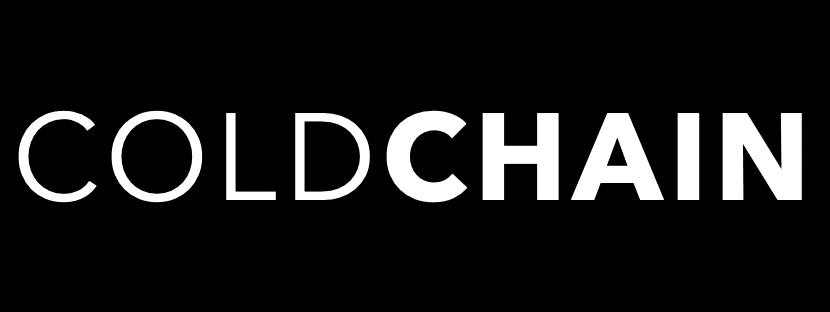In an era marked by digital evolution, the paradigm shift to Web3 is fundamentally reshaping the landscape of digital marketing. As the digital realm continues to undergo a revolutionary transformation, marketers are presented with unparalleled opportunities to connect with their audience in more meaningful and authentic ways. Web3, with its decentralized, community-driven ethos, is fostering a new era of trust and transparency in marketing interactions.
By integrating blockchain, NFTs, and decentralized finance, Web3 not only empowers users with ownership and control over their data but also revolutionizes the dynamics of digital advertising and customer engagement. This transformative wave is propelling businesses to rethink their strategies and embrace a more personalized, value-driven approach.
As we delve into the impact and potential of Web3 in the realm of digital marketing, it’s evident that adaptation and innovation are imperative for staying ahead in the ever-evolving digital ecosystem. Join us as we navigate the uncharted territories of Web3 and uncover the unprecedented possibilities it holds for the future of marketing.
Before we begin, ‘what is web3 marketing?‘:
Web3 marketing refers to the strategies and practices utilized to promote products or services within the Web3 ecosystem. It involves leveraging decentralized technologies, such as blockchain, to engage with users in a transparent, secure, and peer-to-peer manner. Web3 marketing focuses on community-driven approaches, utilizing decentralized applications (dApps), non-fungible tokens (NFTs), and smart contracts to create more direct, trust-based relationships between businesses and consumers. It emphasizes the decentralization of control, data ownership, and incentivizing active participation, fostering a more democratic and user-centric marketing environment compared to traditional methods.
Web3 Marketing Decoded: Revolutionizing Online Branding and Engagement

In the era of Web3, the landscape of online branding and engagement is rapidly evolving, promising a paradigm shift in digital marketing. The integration of blockchain technology and decentralized networks is revolutionizing the way brands connect with their audience, ushering in a new wave of transparency and trust. As online consumer behaviors continue to adapt, it’s imperative for marketers to decode the potential of Web3 and harness its power to redefine branding strategies.
Embracing Web3 marketing means embracing the future of digital brand interaction. This transformative approach transcends traditional marketing methods, offering a more immersive and participatory experience for consumers. By understanding the nuances of Web3, brands can create meaningful connections, foster genuine engagement, and cultivate brand loyalty in unprecedented ways.
Join us as we delve into the realm of Web3 and unveil the game-changing tactics that are reshaping the digital marketing landscape. Discover how brands can leverage the decentralized web to amplify their online presence, engage with authenticity, and chart a new course for sustainable brand growth.
Understanding Web3 Marketing and its impact

Web3 marketing represents a fundamental shift from the centralized nature of Web2. It is centered around the principles of decentralization, transparency, and community participation. Unlike its predecessor, Web3 empowers users to have greater control over their data and interactions, fostering a more equitable digital ecosystem. This new paradigm opens up opportunities for brands to engage with their audience on a deeper, more meaningful level, creating value through shared experiences and collaboration.
The decentralized nature of Web3 also introduces the concept of digital ownership, wherein users have the ability to truly own their online assets. This shift has given rise to non-fungible tokens (NFTs), which have become a key component of Web3 marketing strategies. NFTs enable brands to create unique, ownable digital assets that hold intrinsic value, paving the way for new forms of brand expression and engagement. As the digital landscape continues to evolve, understanding and embracing the principles of Web3 marketing will be crucial for brands seeking to stay ahead of the curve.
The ethos of Web3 is rooted in trust and transparency, offering a stark departure from the data privacy concerns and centralized control that have plagued the digital realm. By leveraging blockchain technology, brands can provide verifiable proof of authenticity, ensuring that their interactions with consumers are built on a foundation of integrity. This shift towards a more transparent and accountable digital environment holds immense potential for reshaping the dynamics of online branding and engagement.
The Impact of Web3 Marketing on Online Branding

The impact of Web3 on online branding cannot be overstated. This new paradigm has fundamentally altered how brands approach their digital presence, shifting the focus from centralized control to community-driven engagement. In the Web3 era, branding is no longer just about creating a recognizable logo or tagline; it’s about cultivating a genuine sense of community, trust, and shared values with the audience.
Web3 has ushered in a new era of transparency, where consumers expect brands to be open and accountable for their actions. The decentralized nature of Web3 technologies empowers individuals to verify the authenticity of products, services, and brand messaging, driving brands to adopt more ethical and transparent practices to earn and maintain consumer trust.
Furthermore, the rise of NFTs and blockchain-based ownership has enabled brands to create unique, digital assets that hold value and authenticity, opening up new avenues for creative expression and brand storytelling. The impact of Web3 on online branding is profound, reshaping the way businesses build and nurture their digital identities in an era of decentralized trust and authenticity.
Decoding Web3 Marketing Strategies that deliver impact

Decoding Web3 marketing strategies requires a fundamental shift in mindset from traditional marketing approaches. Unlike Web 2.0 strategies that heavily relied on mass advertising and influencer endorsements, Web3 marketing is centered around creating authentic, value-driven interactions with consumers. Brands need to pivot towards community-centric strategies that prioritize transparency, participation, and co-creation.
One key aspect of decoding Web3 marketing strategies is understanding the role of decentralized platforms in fostering meaningful connections with the audience. By leveraging blockchain-based social networks, decentralized content sharing platforms, and community-driven marketplaces, brands can engage with consumers in a more organic, trustless environment that aligns with the principles of Web3.
Moreover, Web3 marketing strategies involve harnessing the power of tokenization and decentralized finance to incentivize consumer participation, creating new models for value exchange and community governance. By embracing these innovative approaches, brands can cultivate loyal communities that actively contribute to the growth and evolution of the brand ecosystem.
NFTs and their Role in Web3 Marketing

Non-fungible tokens (NFTs) have emerged as a groundbreaking tool for brands to create unique, digital assets that hold verifiable ownership and authenticity on the blockchain. In the realm of Web3 marketing, NFTs offer a novel way for brands to engage with their audience, offering exclusive digital collectibles, limited-edition content, and immersive experiences that resonate with the values of decentralization and ownership.
By leveraging NFTs, brands can craft compelling storytelling experiences, allowing consumers to participate in the creation and curation of digital assets that hold intrinsic value and meaning. This not only fosters a sense of exclusivity and belonging within brand communities but also opens up new revenue streams through the sale and exchange of NFT-based merchandise and experiences.
The role of NFTs in Web3 marketing extends beyond mere digital collectibles, as they pave the way for redefining intellectual property rights, fan engagement, and the monetization of digital content in a decentralized, trustless environment. Brands that embrace NFTs as part of their marketing strategy can unlock new avenues for creativity, engagement, and value creation within the Web3 ecosystem.
Looking to implement effective Web3 Marketing for your project?
Fill out the form below:
Our Final Thoughts
The Future of Web3 Marketing and Conclusion
The future of Web3 marketing holds immense potential for brands to forge deeper, more meaningful connections with their audience. As blockchain technology, NFTs, and decentralized finance continue to mature, the marketing landscape will see a shift towards more personalized, community-driven experiences that empower consumers and foster collective ownership and participation.
We can expect to witness the rise of decentralized autonomous marketing organizations (DAMOs), where brand communities play an active role in shaping marketing strategies, content creation, and value exchange. The future of Web3 marketing is one where brands collaborate with their audience to co-create immersive, value-driven experiences that resonate with the ethos of decentralization and authenticity.
Moreover, as Web3 technologies become more accessible and integrated into mainstream digital platforms, brands will have the opportunity to tap into a global, interconnected audience that values transparency, privacy, and ethical engagement. The future of Web3 marketing is not just about innovation; it’s about cultivating a new era of trust, ownership, and community-driven brand experiences.
Frequently Asked Questions
Web3 Marketing stands out for its decentralized nature, leveraging blockchain, smart contracts, and enhanced user engagement, setting it apart from traditional marketing models.
Web3 places a premium on user privacy, employing decentralized systems to ensure secure data management without intermediaries.
While traditional SEO strategies remain relevant, optimizing for decentralized platforms and token economies becomes a pivotal part of Web3 Marketing.
Non-Fungible Tokens (NFTs) play a significant role, offering unique opportunities for brands to engage audiences through exclusive, tokenized content.
Navigating legal and regulatory frameworks, adapting to decentralized systems, and ensuring user trust and security pose initial challenges in adopting Web3 Marketing.
The future of Web3 Marketing holds promises of continued innovation, evolving community engagement, and enhanced brand-consumer interactions.
Web3 in marketing marks the shift from centralized (Web 2.0) to decentralized (Web 3.0) data usage. It prioritizes data privacy, community-driven strategies, and personalized user experiences in digital marketing.
The Web3 marketing idea revolves around decentralization, emphasizing user data ownership, personalized experiences, and community engagement, requiring innovative marketing strategies.
Market a Web3 product by focusing on decentralized principles, highlighting data privacy, offering personalized experiences, engaging communities, and adopting innovative strategies aligned with Web3 concepts.
Learn Web3 marketing by exploring decentralized ecosystems, understanding data privacy concepts, grasping community-driven strategies, and developing skills in personalized marketing while staying updated on industry innovations.
An example of Web3 marketing involves a company promoting its product, emphasizing user data ownership, providing personalized experiences, and involving the community in product development and marketing efforts.
A Web3 marketing campaign might include a decentralized platform rewarding user participation with tokens, focusing on data privacy, offering personalized content, and involving users in product decisions.



